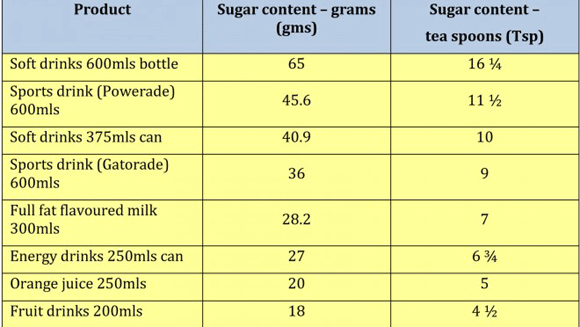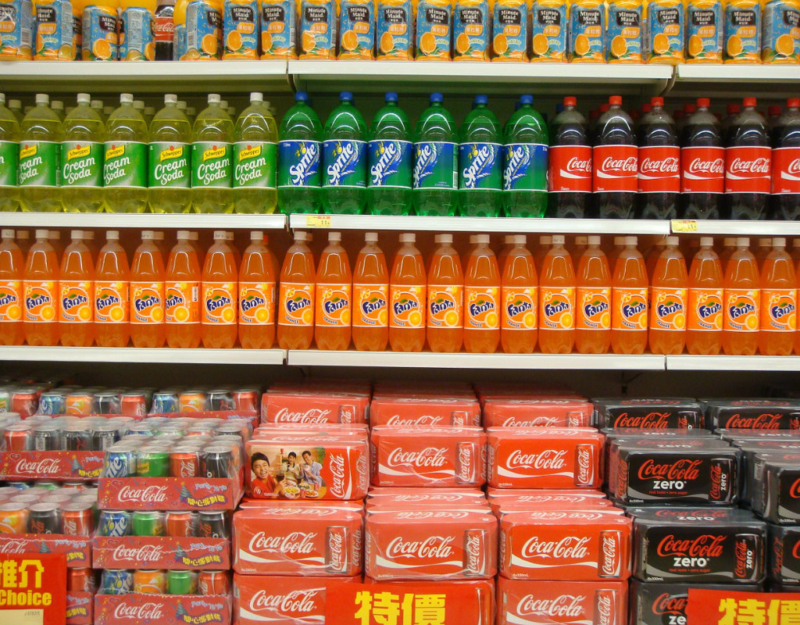There have been calls in the past for a tax to be imposed on sugary drinks because of the link between excess sugar in our diets and the growing obesity epidemic. Leading dental expert, Dr. Rob Beaglehole, joined the calls but his focus was on the impact of sugary drinks in particular on toddlers and children.
The impact on children’s teeth
In TVNZ’s Sunday current affairs programme on 8 March 2015, Dr. Beaglehole explored the number one reason children were admitted in to New Zealand’s hospitals – to have their rotten teeth removed under general anaesthetic. More than 30,000 children have teeth removed each year under local anaesthetic. 5000 of these children are under the age of 7 with the majority of this group being under 4 years old.
Sugary drinks include not only soft drinks but also energy drinks, ice blocks and even fruit juice. The recommended daily intake of sugar is 3 teaspoons.

Sugar tax
Dr. Beaglehole called for a tax on sugary drinks because of the evidence that this will help reduce consumption. In 2014 the Mexican government introduced a 10c/litre tax on sugary drinks. After just 3 months there was a 10% reduction in sugary drink consumption and over the year they raised $1 billion in tax.
In the United Kingdom, Chancellor George Osborne included a two-tier ‘sugar tax’ in his March 2016 budget. The rate of the tax that will be applied from April 2018 to drinks is yet to be determined but health campaigners called for a 20% levy. The move was welcomed by celebrity chef, Jamie Oliver.
We did it guys !!we did it !!! A sugar levy on sugary sweetened drinks …… A profound move… https://t.co/0XkydLzLCo
— Jamie Oliver (@jamieoliver) March 16, 2016
Do you agree there should be a tax?
This article was written for Kidspot New Zealand. Sources include kidspot.com.au and TVNZ’s Sunday.







While taxing unhealthy products can be a good incentive to reduce consumption of these items, some people will still buy them and reduce their spending elsewhere. Possible lowering tax on healthy products is a better idea, it still provides a similar incentive without taking away from families with limited resources.
Although I agree with it to a certain degree, I also agree with the above comments. People who only buy sugary things occasionally will be penalised and those who are buying them all the time, will continue to buy at the more expensive prices.
What we need to do is remove the gst off of fruits and vegetables. Also fresh meat. Things that are good for us.
We don’t drink fizzy drink at all in our house. I’ve never liked it even as a kid so I don’t buy it. Miss 4 has had it a couple of times at other places as a treat and she does like it, but if she wants to buy it when she’s older that is her choice.
Hard one – as a lot of people are likely addicted to the drinks (sugar) and would continue to buy them anyway, a lot like cigarettes in a way, people may start doing dumb things to get it if the prices go up, sad but true. We have a soda stream and have fizzy water in our family, we get Speights water from the well at the Speights Brewery in Dunedin 🙂 We very occasionally have a fizzy drink but it’s usually Phoenix Organic fizz with reduced sugar. I hate seeing so many little kiddies with rotten teeth and getting teeth pulled out and fillings, really sad 🙁
I do not agree with a sugar tax as I feel that the people who drink lots of it will continue to buy it. Our family only have fizzy as a treat and not everyday use like some other families. I think parents need to think
about what they are giving there children and the effects it will have in there teeth and there children’s health now and in the future.
I don’t really agree with the tax. I know there’s sugar in fizzy drinks and we try to minimise having it. But I still think we’d be better off rewarding good food behaviour than hitting people in their pockets for so called ‘bad choices’. In my mind, the people most able to make good choices can do so because they have that privelege available. And if someone in the middle to upper income wants something sugary, they can afford to pay for it, taxed or not. Affordable food and easy cheap meals are often laden with sugar and other things. But if you are in a lower income situation, you can’t always afford to go sugar free.